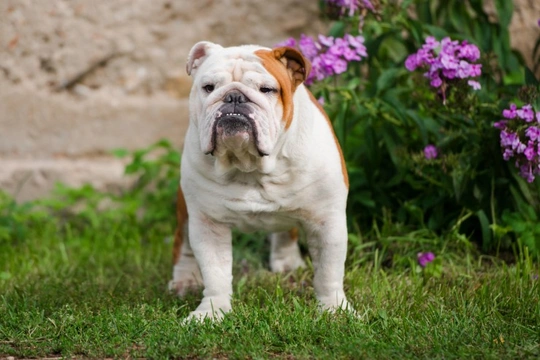
Urge incontinence or bladder spasms in the dog
Urge incontinence is one of various different types of urinary incontinence that can affect the dog, leading to them being unable to hold their bladder, and perhaps, urinating in the home or other inappropriate places. This is a veterinary issue rather than a behavioural one, and involves a sudden and very strong need to urinate without notice, causing the bladder to go into spasm and expelling urine, which the dog has no control over.
This can present as urine leakage throughout the day in small quantities, or suddenly going to the toilet without any warning. Urge incontinence can affect dogs of either gender, neutered or not, and of any age, although it most commonly presents in older dogs, whose bladder muscles are weaker.
The problem may be an ongoing one that leads to inappropriate urination several times each day, or just on the odd occasion. Understanding the reasons for urge incontinence and how it affects your dog is the first step in dealing with the problem, which we will cover in more detail within this article.
What causes urge incontinence in the dog?
Urge incontinence differs from other forms of canine incontinence because it results in a very urgent and sudden need to toilet, which the dog has no control over. Unless the dog already happens to be outside at the time or is able to get outside very quickly, this means that the dog will urinate wherever they happen to be at the time.
Urge incontinence is caused by an involuntary spasming of the muscles of the bladder, which may simply happen as the result of aging itself weakening the bladder muscle control of the dog. However, it can also happen in younger dogs that have been spayed or neutered too early, and the reproductive hormones oestrogen and progesterone respectively are an integral part of bladder control.
There are also a huge range of other potential factors that can cause or contribute to bladder spasms in the dog, including:
- Bladder stones.
- Cancer of the bladder.
- Inflammation of the bladder.
- A blockage in the bladder.
- Infections.
- Problems with the neural pathways between the brain and the muscles that control the bladder.
- Nerve damage or injuries.
- For male dogs, prostate problems can also lead to urge incontinence.
Diagnosing urge incontinence in the dog
It might seem as if incontinence is a fairly simple problem to notice and identify, and this is generally the case for the dog. However, housetrained dogs will often feel very bad about urinating in the home, and expecting disappointment or a telling off from their owner, may go out of their way to conceal what has happened.
Keep an eye out for wet patches or spots of urine around the home, or if your dog’s back end seems damp or wet for no reason. Also, monitor how often your dog asks to go out, how urgently they appear to need to go out, and if there are any other changes in their general demeanour and temperament as well.
Managing urge incontinence in the dog
Once urge incontinence has been formally diagnosed by your vet, they will talk you through some of the options available to you to manage the issue and get things back under control.
Depending on how severe the problem is, including how often it happens and how much urine your dog passes each time, behavioural adjustments such as providing more opportunities to go out, or free access to the outside world may be the best way to manage the issue.
Certain medications may be available depending on the cause of the problem, for instance, hormone replacement therapy may be indicated for dogs whose urge incontinence came about as the result of premature spaying or neutering. Other medications such as Prion may be given, which help to strengthen the muscles of the bladder, allowing your dog to get better control over the problem.
It is also important that you never make your dog wait when they need to go outside to the toilet, and this may potentially mean that they need to be able to go out at some point during the night as well.
While urge incontinence can be a problem for owners on many levels, often, resolving the problem that led to the condition (such as bladder stones or other veterinary conditions) will get the problem under control once the underlying condition has been treated.
Regardless of the cause of urge incontinence in your own dog, there will almost certainly be a way to address and manage the issue once it is diagnosed. It is really important as well to remember that this is not a behavioural issue and that your dog cannot help themselves, so do not punish them or otherwise scold them for urinating when they cannot control it.



